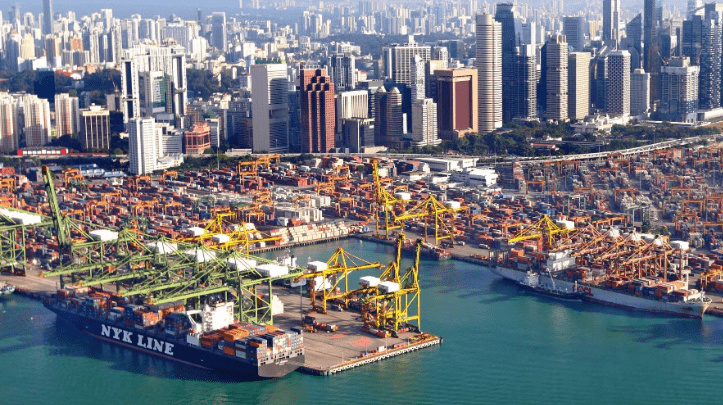Singapore maintained its position as the most important shipping hub in the Asia-Pacific region, ranking first for seven consecutive years, a new index shows.
The 2020 Xinhua-Baltic International Shipping Centre Development (ISCD) Index has been published by the Baltic Exchange, in collaboration with Xinhua, the Chinese state news agency.
The index, in its seventh edition, provides an independent ranking of the performance of the world’s largest cities that offer port and shipping business services.
Based on objective factors including port throughput and infrastructure; depth and breadth of professional maritime support services; as well as the general business environment, the latest report shows that the top five international shipping centres remain the same as in 2019, although with some movement. Singapore tops the list for the seventh consecutive year followed by London, Shanghai, Hong Kong and Dubai.
As explained, Singapore once again ranked first thanks to its geographical location, shipping industry ecosystem and supportive government policies.
London, with advantages accruing from providing high-end shipping finance, insurance, and legal services, has climbed back to the second place after dropping to third place in 2018 and 2019. London and Dubai are the only top 5 international shipping centres outside Asia.
In addition, the index showed a continued rise in Middle East and Mediterranean locations with Dubai, as the pre-eminent shipping hub in the Middle East, retaining fifth place while Athens rose to eighth place.
As the biggest port in terms of container throughput, Shanghai has seen a steady improvement in port facilities and shipping service levels and has ascended to the top three for the first time. Hong Kong fell to fourth place mainly due to a decrease in cargo throughput and a drop in rankings relative to other centres in areas such as ship brokerage, insurance and legal services.
Rotterdam and Hamburg have also retained their positions since 2018, ranking sixth and seventh respectively. Benefiting from an improving business environment, Athens rose to eighth. New York-New Jersey slipped by one place, while Tokyo rose one place, returning to the ranks of the top 10.
“Whilst this report reflects a pre-COVID 19 world, those locations which continue to build on their strengths, are able to communicate a clear vision for the future and diversify beyond the physical port hub will be the ones who are able to succeed in the future,” Mark Jackson, Baltic Exchange Chief Executive, said.
“We call on all the main shipping hubs to continue investing in education, R&D and new services; remain open to global talent and offer an attractive international business environment.”
“This good news comes amidst the COVID-19 gloom. The real test will be how we bounce back in a world shaken by an unprecedented crisis,” Quah Ley Hoon, Maritime and Port Authority of Singapore Chief Executive, commented.
“We will need a global and co-ordinated effort. In this regard, Singapore will continue to rally governments and the global shipping community to work together and emerge stronger. Within Singapore, we stand united with our maritime companies, industry partners and unions, and will strive to maintain our position as a leading International Maritime Centre and a global hub port.”
“The year, the China Economic Information Services and Baltic Exchange collaborated together with great efforts to launch the Index as scheduled amid the challenging situation brought forth by Covid-19,” Xu Yu Chang, President of The China Economic Information Service, a wholly-owned company of the Xinhua News Agency, noted.
